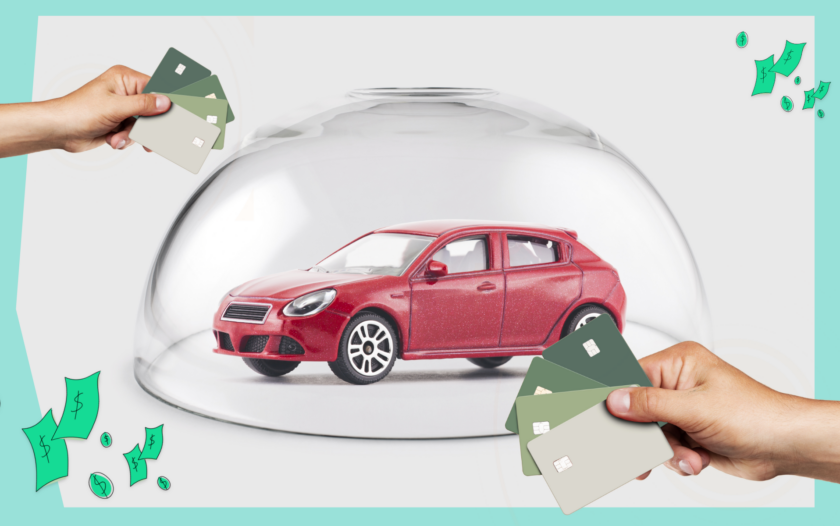Pay Car Insurance With Credit Card
About Harrison
Harrison Pierce is a writer and a digital nomad, specializing in personal finance with a focus on credit cards. He is a graduate of the University of North Carolina at Chapel Hill with a major in sociology and is currently traveling the world.
Read full bio
At a Glance
Convenience is key, and that extends to managing your car insurance payments. Many insurance providers now offer the option to pay your car insurance premiums with a credit card. While this may seem like a straightforward choice, there are both advantages and drawbacks to consider. Let’s explore whether you can pay your car insurance with a credit card, its benefits, potential pitfalls, and how to make payments effectively.
In this article, you’ll learn:
$2,148
The average annual car insurance cost in the United States in 2023.


Can you pay your car insurance with a credit card?
The simple answer is yes, you can pay your car insurance with a credit card. Many insurance companies have adapted to the changing times and now accept credit card payments as a viable option. However, it’s essential to check with your specific insurance provider to ensure they offer this service.
Advantages of paying car insurance with credit card
1. On time payments
One of the most significant advantages of using a credit card to pay your car insurance is the ease of making on-time payments. Credit cards allow automatic payments, ensuring your premium is paid promptly without any manual effort. This can help you avoid late fees and potential policy lapses.
2. Can be paid in full
If you have the financial means, paying your car insurance premium in full with a credit card can provide peace of mind. It eliminates the need for monthly payments and ensures continuous coverage for the entire policy term.
3. Earn rewards
Many credit cards offer rewards programs, like cashback, points, or miles, for every purchase you make. You can capitalize on these rewards by paying your car insurance with a credit card, potentially offsetting some of your insurance costs or even earning valuable perks.
Drawbacks of paying car insurance with credit card
1. Might impact your credit score
While paying your car insurance with a credit card can be convenient, it’s essential to manage your credit responsibly. If you max out your credit limit or fail to make timely payments, it can negatively affect your credit score, potentially leading to higher insurance premiums.
2. Higher interest rate
You may incur high-interest charges if you carry a balance on your credit card. This can significantly increase the cost of paying for your car insurance over time, erasing any rewards or benefits you may have gained.
3. Additional charges
Some insurance providers may impose fees or surcharges for credit card payments. It’s crucial to review your insurer’s payment policies to understand any potential additional costs associated with this payment method.
How to pay car insurance with a credit card?
Paying your car insurance with a credit card is relatively straightforward:
- Contact your insurance provider: Ensure they accept credit card payments and inquire about fees or surcharges.
- Provide your card information: Share your credit card details, including the card number, expiration date, and security code.
- Set up automatic payments: Consider setting up automatic payments to ensure your premiums are paid on time.
- Monitor your credit utilization: Keep an eye on your credit card balance to avoid negatively impacting your credit score.
FAQs
Most major car insurance companies accept credit card payments. However, it’s essential to verify with your specific provider. Paying car insurance with a credit card can be advantageous for convenience and rewards, but it’s essential to manage your credit responsibly to avoid negative consequences. The choice between a bank account and a credit card depends on your financial situation and preferences. Credit cards offer convenience and rewards, while bank accounts may have fewer associated fees. Typically, car insurance payments do not directly impact your credit score unless you miss payments or use a credit card irresponsibly. In addition to credit cards, you can typically pay for car insurance using debit cards, electronic funds transfer (EFT), checks, or direct bank transfers.









